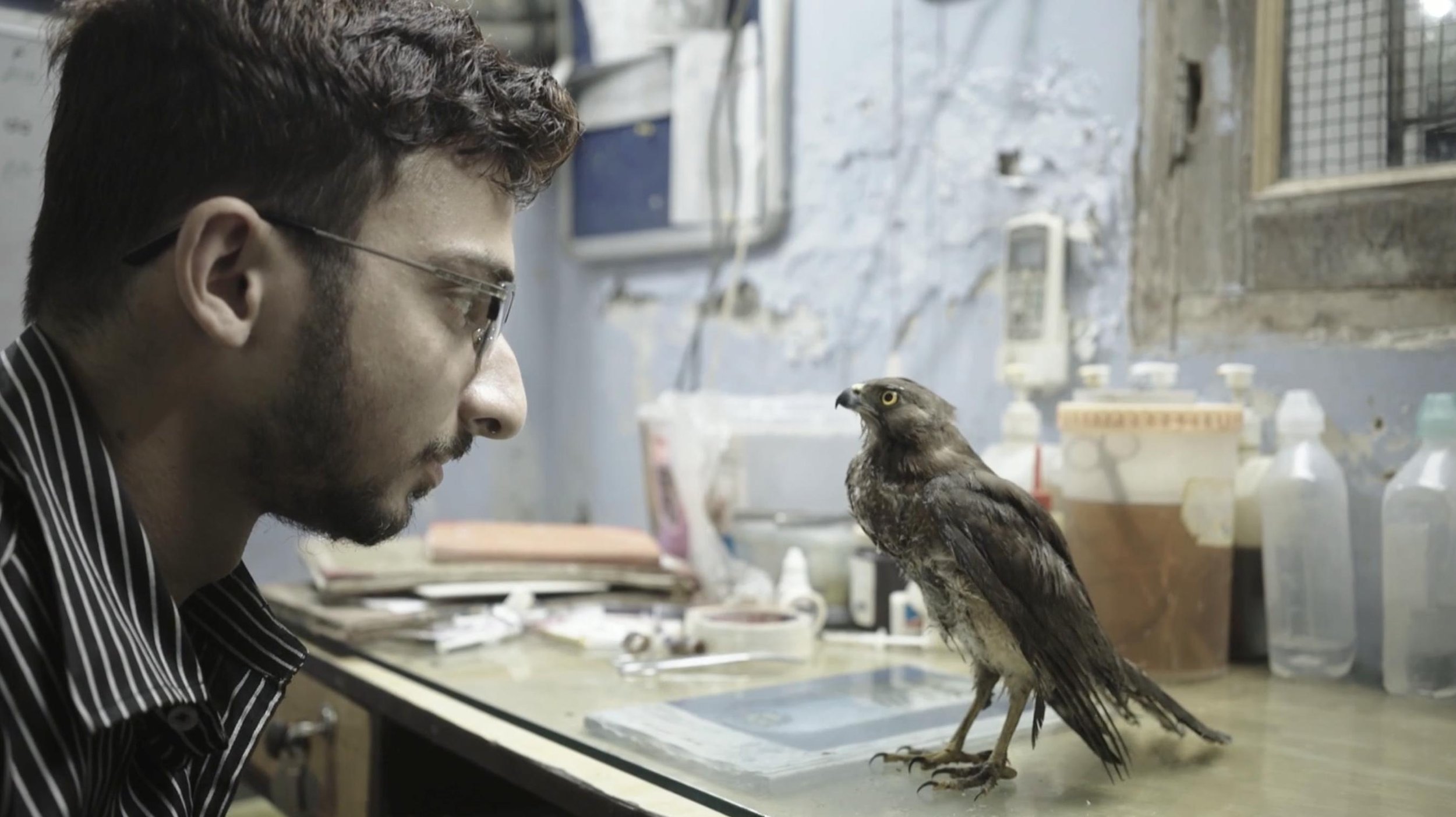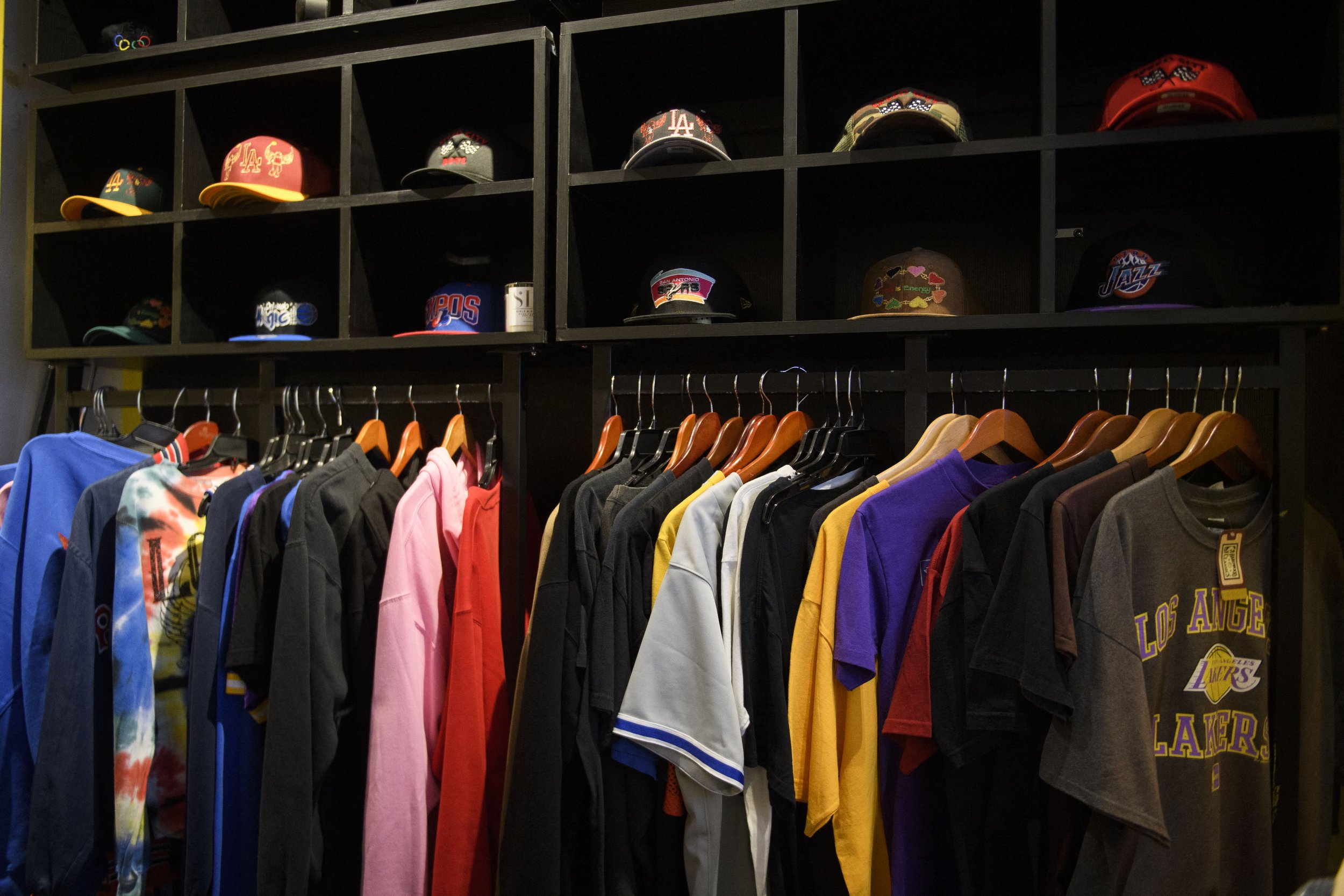Sustainable Climate Reporting in the South
A man carries a shopping cart with supplies past a pile of debris collected after Hurricane Laura as Hurricane Delta approaches in Lake Charles, Louisiana, U.S., October 9, 2020. [Reuters/Jonathan Bachman]
This interview is part of a series highlighting new publications. Past installments have included Africa politics site Africa is a Country, comic magazine The Nib, Southern magazine Scalawag, feminist magazine Lux and political journal Spectre.
At Southerly, sustainability is the name of the game. Founded by journalist Lydnsey Gilpin in December 2016, Southerly’s six-person staff focuses on climate and environmental justice across the South.
By collaborating with local news outlets and staying in close touch with its readers, Southerly’s mission is centered on community, and dedicated to strengthening environmental reporting throughout the region. It’s a stark difference from the reporting that Gilpin, a longtime Louisville, Kentucky, resident, witnessed in national outlets leading up to the 2016 presidential election.
“We saw a lot of stories creating this image of the South as Trump Country [and] a monolith, particularly Appalachia, but in general the rural South … I was like, I can't stand this,” Gilpin said. She started Southerly as a weekly newsletter soon after, later developing a nonprofit website with the help of small grants. Still, the operation remains tight. Southerly publishes at most twice a week, and most staff members are part time.
I spoke with Gilpin about information access, community engagement and how easy it is to commit “parachute journalism,” even in your own backyard. Here are some of the ways that Southerly is trying to make a more sustainable impact in environmental reporting.
🔎 Hire local
“Parachute journalism” has long been a problem in the South, resulting in thin reporting ignorant of local context. “Oftentimes when there’s a hurricane or a chemical spill … reporters would descend on whatever state it happened in, write about it and leave,” Gilpin said. The problem has worsened as local publications are bought up and thinned out by news conglomerates like Gannett and McClatchy, two of the largest newspaper publishers in the U.S.
Southerly works to hire freelancers who intimately know their terrain (and pays those writers well). Gilpin attributed this effort to Ko Bragg, Southerly’s contributing editor. “[We’re trying to] make sure that people are writing about the places that they know and care about,” said Gilpin.
🤝 Survival through collaboration
Being a small publication, Southerly’s strength lies in its ability to work well with others on editing, reporting and getting stories into other forms of media, like radio.
Southerly has previously worked with Scalawag magazine, Enlace Latino NC, the Montgomery Advertiser, The Times-Picayune, The New Orleans Advocate, and the Louisiana Illuminator. In partnership with Enlace Latino NC, they’ve hired a reporter in Durham, North Carolina, to write about the intersections of environment and economic mobility in the state, focusing on rural Latino farm workers, meatpacking plant workers and other labor communities. Using a grant, they’re able to pay to have the reporting translated.
All of these partnerships help produce strong journalism even though “this industry is just crumbling.” The landscape of nonprofit news publications, often seen as the “savior of journalism,” still looks similar to the for-profit world, she said. A few outlets “get most of the money and everyone else is fighting for the scraps,” she continued. “I just do not see a future in this industry without really intentional collaborations.”
🌆 Serving communities in struggle
Creating journalism that actually serves Southerners means engaging with the Southerners who have been excluded from discussions about ecology, environment and climate: low-wealth, rural, Black and Indigenous communities and communities of color. “It's really trying to figure out the problem with information access. Storytelling is important but it doesn't matter unless people have access to that information,” Gilpin said.
“If you're in Alabama, you might think you're alone in your fight against, say, a particular landfill, or an industry that's trying to come into your town. But that's playing out all over this region, in Kentucky, and North Carolina,” she continued. “And if we can start to connect those dots and show people that they're not alone and help them get the information they need to ask the right questions of their county commissioners or city council members … then we can start to really build power.”

![A man carries a shopping cart with supplies past a pile of debris collected after Hurricane Laura as Hurricane Delta approaches in Lake Charles, Louisiana, U.S., October 9, 2020. [Reuters/Jonathan Bachman]](https://images.squarespace-cdn.com/content/v1/5f21dbb91adde3260d4ba1ef/1628700234067-STX27UEFPFE5XPKVH40O/2020-10-09T161904Z_493528946_RC24FJ9PAEY0_RTRMADP_3_STORM-DELTA.JPG)



